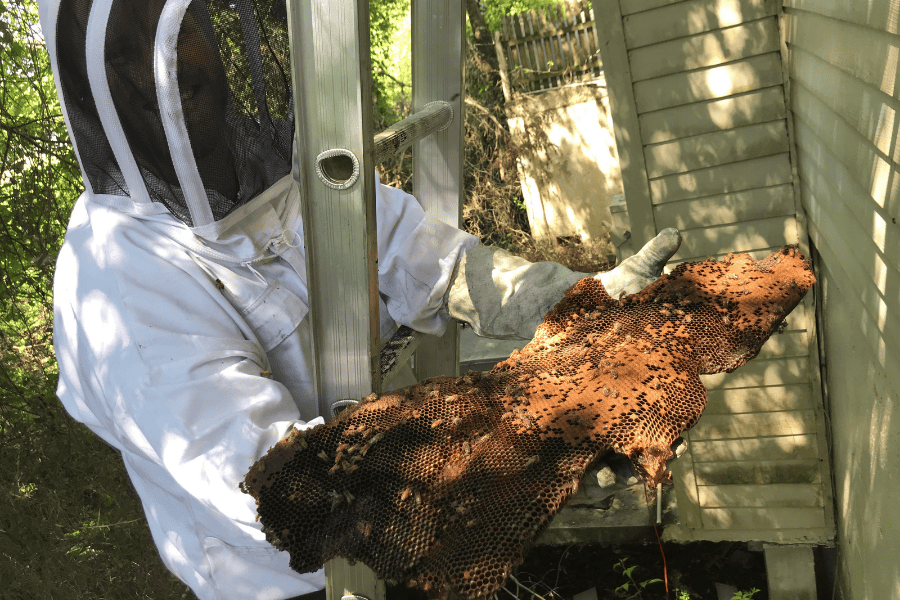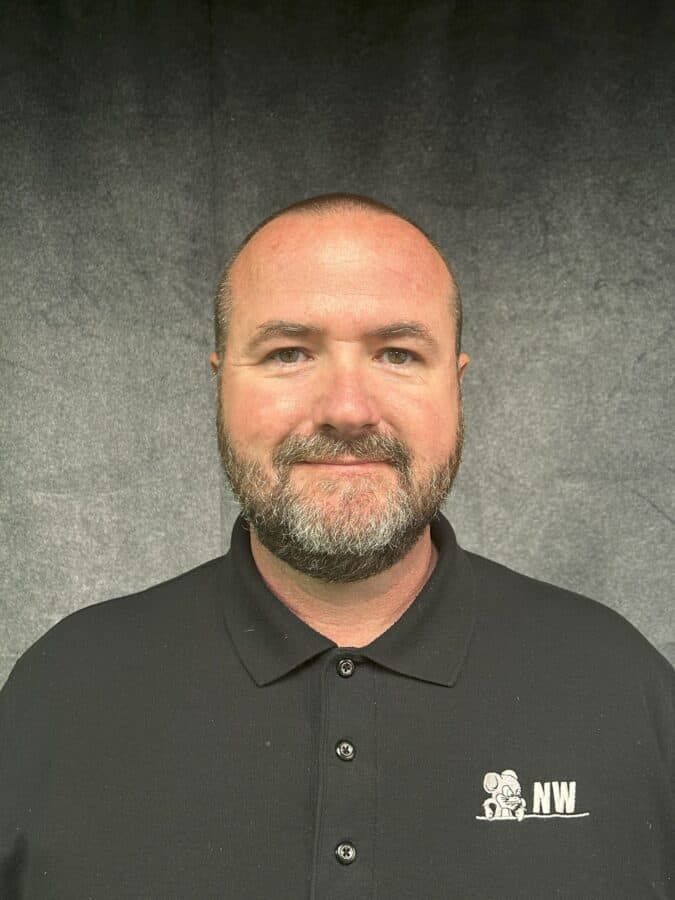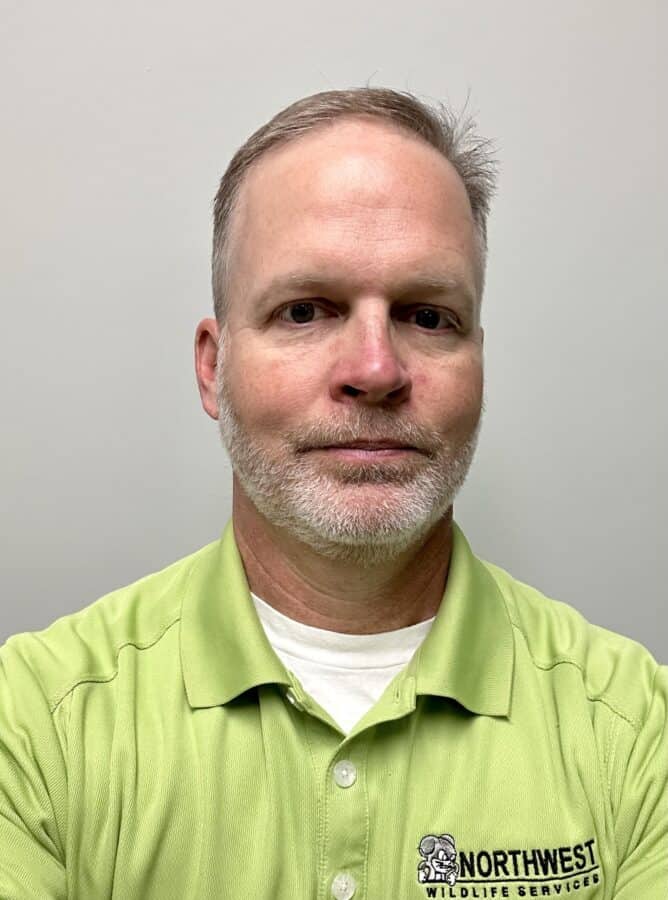READY TO GET STARTED?
REQUEST A FREE ESTIMATE
Fill out the form below or call (888) 466-7849 for a free, no-obligation estimate.

Bees play a remarkable role in maintaining our ecosystem. Their tireless work as pollinators supports the growth of plants that provide food, oxygen, and habitat for countless species, including us. However, when bees decide to make their home just a little too close to yours, it can pose challenges for homeowners. If you’ve noticed increased bee activity around your house, don’t panic! This guide will help you recognize the signs of a potential bee infestation and explain how professional help can manage the situation while staying out of harm’s way.
Before you assume you have a bee infestation, it’s important to identify the signs. Here are some telltale indicators that bees may have established a colony on your property:
Seeing a few bees in your yard is perfectly normal, especially in garden-friendly states like Georgia. But if you notice a consistent stream of bees flying to and from a specific location, it could be evidence of a nearby colony.
Bees commonly build their colonies within the walls or ceilings of homes. If you hear a faint but steady humming sound, especially in quiet rooms, it could be the sound of an active colony.
If bees have built a colony inside your walls, over time, melted honey or wax may create sticky or dark stains on surfaces. Inspect areas with staining or discoloration to check for other signs of bee activity.
Check attics, vents, chimneys, or exterior cracks in the foundation. Bees are resourceful when it comes to nesting, and these areas are common colony building spots.
A bee swarm can understandably seem alarming, but swarms are often temporary . Swarming typically happens when bees are searching for a new nesting site. If they’re congregating nearby, they might be looking to settle on your property.
We understand you might be tempted to address the problem yourself. However, when it comes to bees, DIY efforts can sometimes make matters worse. Here’s why leaving it to a professional is essential:
If you’ve identified signs of a bee infestation, partnering with a professional bee relocation service is the next best step. Specialists in handling bee situations offer tailored solutions that balance your needs as a homeowner with the wellbeing of the bee population. Here’s how experts can assist:
As a homeowner, it’s normal to feel concerned when bees settle a little too close for comfort. But with expert guidance and humane solutions, managing a bee infestation can be as stress-free as possible. Protect your home and support local pollinators by reaching out to your local bee removal experts today!

Do you know what it takes to become a qualified beekeeper? In the state of Georgia, there are many different levels of skill and knowledge needed when it comes to beekeeping. The minimum requirements include at least one year of beekeeping experience, a written and practical test, and participating in lectures, and that’s just for the bottom tier certification. It’s a process to become someone wholly trusted to care for the honeybee population. It requires the utmost attention and care to continue their important job. Luckily, Northwest has teammates that continue to prove how important their career in pest control is to them.
Let’s meet Northwest’s Honeybee Experts:

Curt has been with Northwest since 2010, with his last 3 years working as the Quality Assurance Trainer and Inspector with our Learning and Technical Services team. Curt currently keeps his own honeybees, so he has extensive knowledge in making sure they are properly cared for. More recently, Curt is a Certified Beekeeper and has also received a newly required license for the State of Georgia that allows him to safely remove honeybee colonies that are in any structure or home.
Curt believes that it’s important to ensure the success of honeybees while also educating our customers and teammates on the importance of these pollinators. He continues to strive for Northwest to be the go-to for honeybee relocation services in the state of Georgia.

Rob is currently our Wildlife North Branch Manager and is also a certified Beekeeper. He is a big advocate of the newly required Georgia license that ensures a safe removal process for honeybees and has also received that in the past year. The removal process can sometimes be stressful for the colony, so having the proper qualifications and resources to ensure their safety is key.
A fun fact about Rob is that he has his own honeybee farm and utilizes the honey that he receives from his bees. Rob began his farm as a place to take any removals performed on the job and ensure they were properly cared for after being safely relocated. He likes to think of the care for honeybees as an ever-evolving science project. The idea that you can safely and correctly remove them from their colony and into a new location and still thrive fascinated him.
Rob is proud of Northwest for making sure its teammates have access to the proper equipment and training needed to safely care for honeybees. He can’t wait to see how big of an impact we can truly make!
At Northwest, we take pride in knowing that we can bring awareness to an important topic that is near and dear to our hearts. We’re grateful for teammates like Rob and Curt who take the time to learn more about a service and how it can positively impact our local communities. If you believe you have a bee colony on your property that needs to be safely relocated, give your licensed honeybee removal company a call!